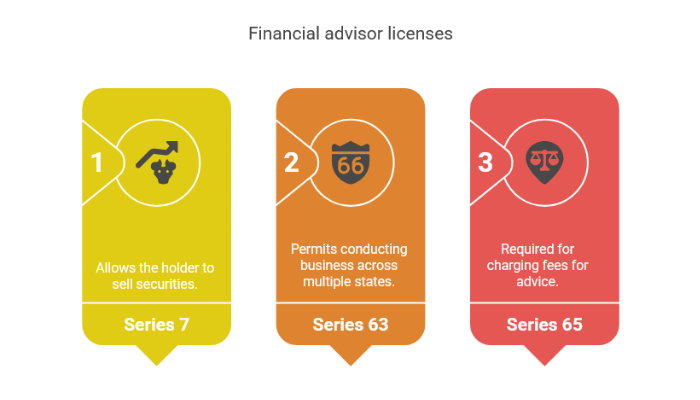Unpacking the Myth: Do You Need a Degree to Be a Financial Advisor?

Many aspiring professionals ask, “Do you need a degree to be a financial advisor?” While no universal law demands it, employers and clients typically expect formal education, especially for those working with high-net-worth individuals seeking complex wealth management services. This article explores the role of degrees, licenses, and certifications in shaping a financial advisor’s career.
Explore The Education Path

A bachelor’s degree often serves as an unofficial baseline for financial advisors. Numerous firms prefer degrees in finance, marketing, or business—fields that offer foundational knowledge in budgeting, investments, and client relations. Some advisors choose advanced degrees such as an MBA for additional credibility, though it is not a strict requirement (Investopedia).
Employers may also welcome diverse educational backgrounds. According to Accounting.com, it is common for hiring managers to prefer at least a bachelor’s degree, but they might also value relevant experience or specialized training. Individuals interested in picking the right field of study can explore different options at major for financial advisor.
Break Down Licensing

Regardless of academic qualifications, licensing typically remains a must for financial advisors. Many advisors complete:
- Series 7 (General Securities Representative) to sell securities
- Series 63 (Uniform Securities Agent State) to conduct business in various states
- Series 65 (Uniform Investment Advisor Law) for those charging advisory fees
Certain waivers may exist for professionals who already hold advanced certifications like the Certified Financial Planner (CFP) or Chartered Financial Analyst (CFA) (SmartAsset). Individuals curious about next steps can review how to get financial advisor license for more details.
Consider Practical Experience

A formal degree is not the only way to gain essential knowledge. Many successful advisors start with experience in banking, insurance, or other client-facing roles. On-the-job training, internships, and networking can prove just as pivotal as classroom learning. In fact, some firms prioritize real-world sales and relationship-building skills over purely academic credentials (Investopedia).
Weigh The Value

For those serving high-net-worth individuals, a strong educational background often fosters confidence among discerning clients. A degree underscores commitment, provides advanced skills, and lays the groundwork for further specialization. Yet it does not stand alone. Advisors must combine their academic knowledge with licenses, specialized designations, and ongoing education to remain competitive. Prospective clients may also check whether advisors have the CFP designation, a marker of integrity and comprehensive planning expertise.
Quick FAQs In One Sentence
One might wonder: “What are the typical licensing requirements for financial advisors, how can a bachelor’s degree help credibility, can prior experience in another field substitute for a finance degree, do advanced degrees significantly impact earnings, and are specialized certifications more valuable than a traditional academic background?”
Summarize Key Insights
While a degree is not legally mandated, it remains a near-standard credential for many financial advisors, especially those aiming to work in fee-only or fiduciary capacities. Beyond education, success hinges on passing licensing exams, obtaining prestigious certifications (such as CFP or CFA), and developing real-world experience. When clients explore choosing a financial advisor, most will gravitate toward professionals with proven qualifications, expertise, and a track record of personalized service. Ultimately, the answer to “Do you need a degree to be a financial advisor?” depends on individual goals, but a solid educational foundation and relevant licenses can help advisors stand out in a competitive field.
Recent Posts
Financial Advisors in Los Angeles to Consider
Finding the right financial advisor can be a pivotal step...
Financial Advisors in New York to Consider
Selecting the right financial advisors in New York can play...





